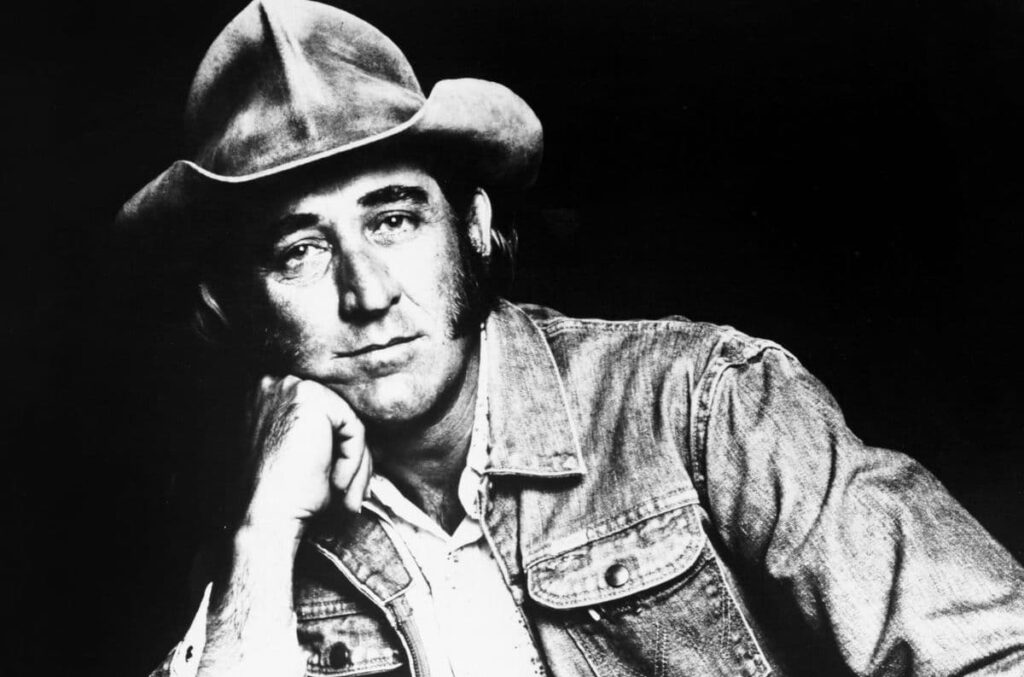
The Gentle Giant’s Testament: A Love So Essential It Becomes Life Itself
There are songs that simply drift through the air, pleasant enough but ultimately fleeting. And then there are those rare, powerful recordings that anchor themselves in the soul, becoming the soundtrack to our most cherished memories—the first slow dance, the quiet comfort of a long marriage, the moment you truly understood the depth of your devotion. “I Wouldn’t Want To Live If You Didn’t Love Me,” a tender masterpiece delivered by the late, great Don Williams—the gentle giant of country music—is unequivocally one of the latter.
The Making of a Timeless Classic
Released in June of 1974, this song marked a pivotal moment in Don Williams’ solo career. Up until then, he had enjoyed a steady stream of respectable hits, but this one was different. “I Wouldn’t Want To Live If You Didn’t Love Me” was his sixth single as a solo artist, and it became his very first number-one hit on the Billboard Hot Country Songs chart. It spent a week at the pinnacle, beginning a remarkable run of twenty-one chart-toppers for the man known for his calm, understated delivery. This success wasn’t just a win for Williams; it also provided the first No. 1 hit for his producer, Allen Reynolds, who would later go on to work with giants like Garth Brooks. The song was the lead single from his third album, the simply titled Don Williams Vol. III, and its immediate, widespread embrace proved that the world was ready for his brand of unhurried, unpretentious, and deeply sincere country music.
The song itself was penned by songwriter Al Turney, and while the specific “story behind it” may not be a dramatic, high-stakes tale, its magic lies in its stunningly simple, everyday truth. Williams was never one for theatricality; his power came from his ability to sing a simple, honest truth and make it feel like he was whispering it only to you.
The Enduring Meaning: Foundational Love
The lyrics of “I Wouldn’t Want To Live If You Didn’t Love Me” are a masterclass in understated emotional weight. It’s not a tale of dramatic, passionate flares, but a quiet, powerful testament to foundational love—the kind that becomes so essential to daily life that its absence is simply unimaginable. The narrator opens with a confession of human failing: “Sometimes you may think I take you for granted / And granted, sometimes maybe I do.” This acknowledgment of real-life imperfections is what makes the song so incredibly relatable to older readers, to those who’ve settled into decades of shared routine.
The meaning revolves around the idea that the beloved isn’t just a partner, but the structural integrity of the narrator’s entire world. The simple acts—waking up to a kiss, being waited for at home—are not small favors; they are the very things that “start my day off right” and give purpose to his existence. The song is a beautiful articulation of how a partner transforms from someone you love to someone you cannot live without. It suggests that the world without that love would be “all blue,” a place devoid of color, warmth, and reason.
It’s this reflective and nostalgic quality that has made the song a treasured memory for those who came of age in the 70s. The smooth, almost conversational baritone of Don Williams wraps around the listener like a warm, familiar embrace. When we hear it now, we don’t just hear a country hit; we hear the echo of a simpler time, a melody that reminds us of the people who are so much a part of our lives that we often forget to tell them just how essential they are. It’s a song that beautifully captures the depth of commitment that only time and shared experience can forge, confirming that the sweetest declarations are often the quietest ones.
If you’re looking to relive that golden era of country songwriting, this video featuring Don Williams’ biggest hit is a perfect place to start: Don Williams “I Wouldn’t Want To Live If You Didn’t Love Me”. This performance showcases the heartfelt delivery that made the song the beloved classic it remains today.